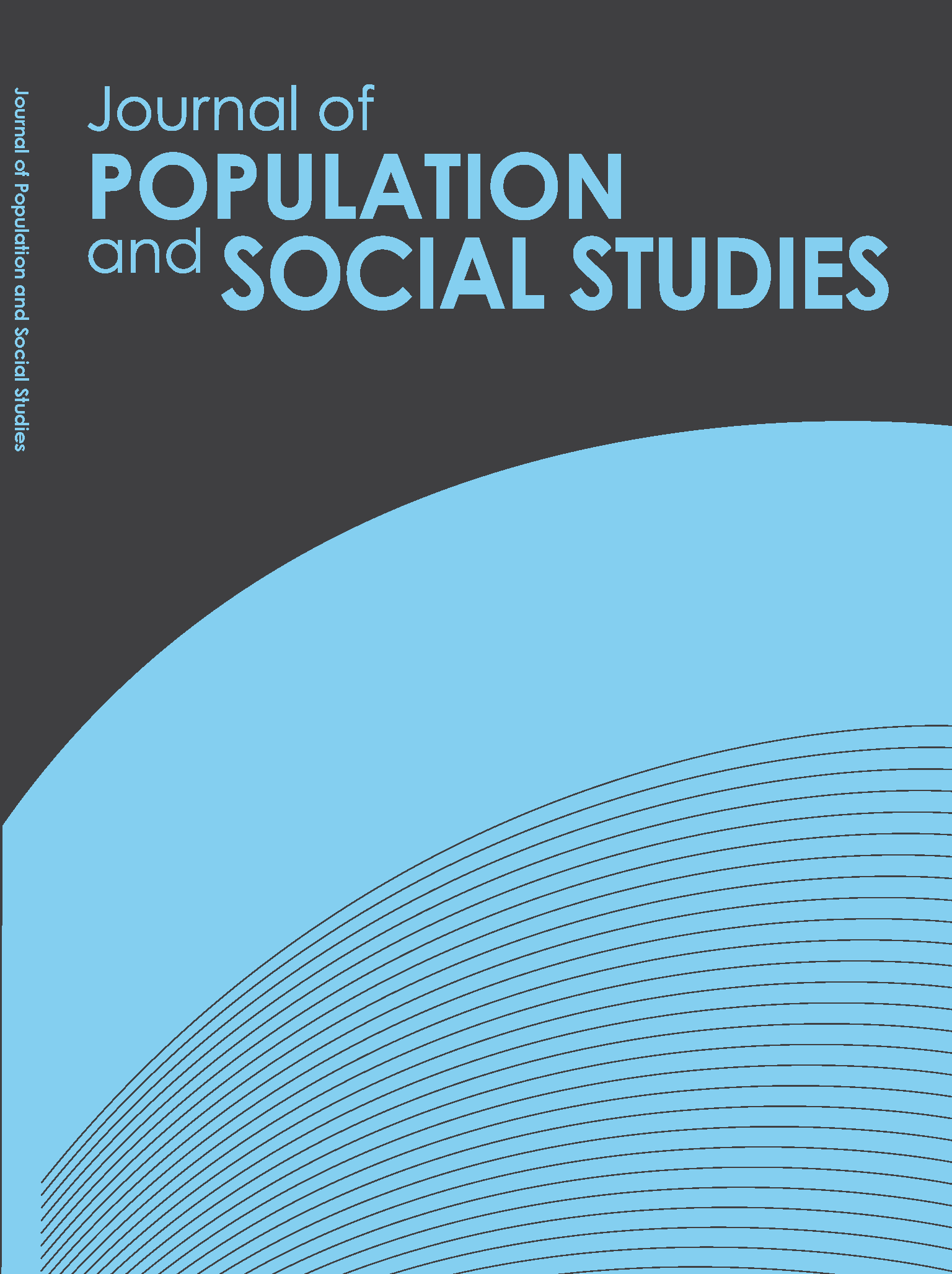Vaccine Adherence and Behavioral Changes of Adults Regarding Prevention of COVID-19: A Community Survey Using the Theory of Planned Behavior
Main Article Content
Abstract
Considering the current context of the coronavirus 2019 (COVID-19) pandemic, people should equally comply with both vaccines and non-therapeutic health protective behaviors. This study investigated public adherence to vaccination, behavioral changes against COVID-19, and their determinants in Bangladesh during the pandemic. The study was conducted during May and June 2022 among 940 Bangladeshi adults selected by multi-stage sampling, and data were collected through face-to-face interviews using questionnaires. Significant determinants and their relationships were described through hierarchical regression and structural equation modeling (SEM) based on the theory of planned behavior (TPB). Nearly half of the subjects (48.2%) showed poor vaccine adherence and COVID-19 prevention practices. During the pandemic crisis, the majority of the respondents (86.7%) used face masks, but only 12.7% of the respondents used them regularly. Less than half (44.9%) received COVID-19 vaccines regularly. Along with some sociodemographic factors, knowledge (p < .001), attitude (p < .01), and intention (p < .001) regarding COVID-19 prevention were significant in predicting vaccine adherence and healthy practices in a hierarchical regression. Self-control was highly significant in SEM, showing the highest effect (p < .001). Policies based on the TPB model could be adopted to improve preventive behaviors against COVID-19.
Article Details

This work is licensed under a Creative Commons Attribution-NonCommercial-NoDerivatives 4.0 International License.
References
• Ajzen, I. (1991). The theory of planned behavior. Organizational Behavior and Human Decision Processes, 50(2), 179–211. https://doi.org/10.1016/0749-5978(91)90020-T
• Alam, M. A., Haque, M. N., Saha, S., Haque, H. S., Clara, A. A., & Sultana, Y. (2021). Preventive behaviour of adults and its predictors in response to COVID-19 pandemic in rural Bangladesh: Findings from a community survey. Bangladesh Medical Research Council Bulletin, 47(1), 9–16. https://doi.org/10.3329/bmrcb.v47i1.55805
• Financial Express. (2020, July 28). Mask-wearing mandatory in BD: Not everyone cares. https://thefinancialexpress.com.bd/health/mask-wearing-mandatory-in-bd-not-everyone-cares-1595928041
• Financial Express. (2022, July 20). Low turnout for Covid booster shot. https://thefinancialexpress.com.bd/national/low-turnout-for-covid-booster-shot-1658238193
• Fridman, A., Gershon, R., & Gneezy, A. (2021). COVID-19 and vaccine hesitancy: A longitudinal study. PLOS ONE, 16(4), Article e0250123. https://doi.org/10.1371/journal.pone.0250123
• Islam, M. R., Hasan, M., Nasreen, W., Tushar, M. I., & Bhuiyan, M. A. (2021). The COVID-19 vaccination experience in Bangladesh: Findings from a cross-sectional study. International Journal of Immunopathology and Pharmacology, 35. https://doi.org/10.1177/20587384211065628
• Kanozia, R., & Arya, R. (2021). “Fake news”, religion, and COVID-19 vaccine hesitancy in India, Pakistan, and Bangladesh. Media Asia, 48(4), 313–321. https://doi.org/10.1080/01296612.2021.1921963
• Lazarus, J. V., Ratzan, S. C., Palayew, A., Gostin, L. O., Larson, H. J., Rabin, K., Kimball, S., & El-Mohandes, A. (2021). A global survey of potential acceptance of a COVID-19 vaccine. Nature Medicine, 27(2), 225–228. https://doi.org/10.1038/s41591-020-1124-9
• Murphy, J., Vallières, F., Bentall, R. P., Shevlin, M., McBride, O., Hartman, T. K., McKay, R., Bennett, K., Mason, L., Gibson-Miller, J., Levita, L., Martinez, A. P., Stocks, T.V.A., Karatzias, T., & Hyland, P. (2021). Psychological characteristics associated with COVID-19 vaccine hesitancy and resistance in Ireland and the United Kingdom. Nature Communications, 12(1), Article 29. https://doi.org/10.1038/s41467-020-20226-9
• Paul, A., Sikdar, D., Hossain, M. M., Amin, M. R., Deeba, F., Mahanta, J., Jabed, M. A., Islam, M. M., Noon, S. J., & Nath, T. K. (2020). Knowledge, attitudes, and practices toward the novel coronavirus among Bangladeshis: Implications for mitigation measures. PLOS ONE, 15(9), Article e0238492. https://doi.org/10.1371/journal.pone.0238492
• Ro, C. (2020, April 3). Washing hands with ash, and other COVID-19 information from Bangladeshi community radio. Forbes. https://www.forbes.com/sites/christinero/2020/04/03/washing-hands-with-ash-and-other-covid-19-information-from-bangladeshi-community-radio/#15782f984ce3
• Sallam, M. (2021). COVID-19 vaccine hesitancy worldwide: A concise systematic review of vaccine acceptance rates. Vaccines, 9(2), Article 160. https://doi.org/10.3390/vaccines9020160
• Smith, J. (2022, February 3). How does AstraZeneca’s COVID-19 vaccine compare to Pfizer’s, Moderna’s, and Johnson & Johnson’s? Prevention. https://www.prevention.com/health/a35118263/astrazeneca -vs- pfizer- vs-moderna-covid-19-vaccine/
• Smith, N. (2020, March 19). Mass religious events spark fears of coronavirus spread in Asia. Telegraph. https://www.telegraph.co.uk/news/2020/03/19/mass-religious-events-spark-fears-coronavirus-spread-asia/
• Tithila, K. K. (2020, July 28). Covid-19: Dhaka division worst at wearing face masks. Dhaka Tribune. https://www.dhakatribune.com/health/coronavirus/2020/07/28/dhaka-division-worst-in-bangladesh-for-wearing-masks
• UNICEF. (2020, May 5). UNICEF Fact Sheet: Handwashing stations and supplies for the COVID-19 response. https://www.unicef.org/documents/handwashing-stations-and-supplies-covid-19-response
• Wang, K., Wong, E. L.-Y., Ho, K.-F., Cheung, A. W.-L., Yau, P. S.-Y., Dong, D., Wong, S. Y.-S., & Yeoh, E.-K. (2021). Change of willingness to accept COVID-19 vaccine and reasons of vaccine hesitancy of working people at different waves of local epidemic in Hong Kong, China: Repeated cross-sectional surveys. Vaccines, 9(1), Article 62. https://doi.org/10.3390/vaccines9010062
• Weinstein, N. D. (1988). The precaution adoption process. Health Psychology, 7(4), 355–386. https://doi.org/10.1037/0278-6133.7.4.355
• Wolff, K. (2021). COVID-19 vaccination intentions: The theory of planned behavior, optimistic bias, and anticipated regret. Frontiers in Psychology, 12, Article 648289. https://doi.org/10.3389/fpsyg.2021.648289
• World Health Organization. (2022a, January 31). Global situation. https://covid19.who.int/
• World Health Organization. (2022b, January 31). Bangladesh situation. https://covid19.who.int/region/searo/country/bd


